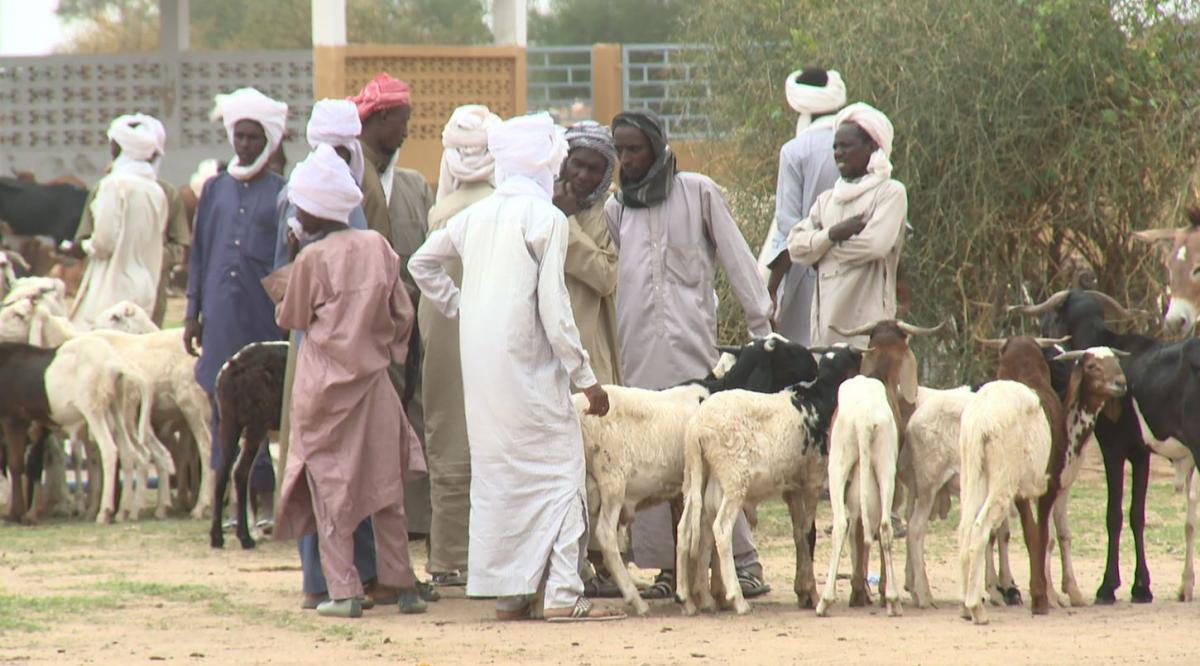- Home
- Worldwide
- CIRAD worldwide
- Projects
- Praps-2 Project
Regional Sahel pastoralism support project - Praps-2

Le projet Praps-2 vise, entre autres objectifs, à faciliter les échanges régionaux. Ici : marché à bétail de Karimé (Tchad) © Praps Communication
Issues
The PRAPS-2 strategy consists in supporting the countries in providing a complementary response to the findings of the PRAPS-1 project, and supplementing this country support with an effective regional response that will promote regional strategic and political integration. This will make it possible to: (i) develop regional consistency on mechanisms for the governance and management of natural resources, support for the national authorities in the implementation of national regulations, and facilitation of regional trade; and (ii) generate and share scientific and technical knowledge underpinning the relevance and sustainability of pastoral practices, and the development of regional and national strategies and investments, taking account of their importance and economic, social and environmental impacts.
At the regional level, the project is implemented by the Permanent Interstate Committee for Drought Control in the Sahel (CILSS), which is also responsible for its overall coordination, under the political leadership of the Economic Community of West African States (ECOWAS) and the West African Economic and Monetary Union (WAEMU) (plus Mauritania and Chad). At the national level, the project is implemented by the ministries in charge of livestock or rural development in each of the six beneficiary countries.
PRAPS-2 is structured around five components:
- Improvements in animal health and control of veterinary drugs;
- Sustainable landscape management and improvements in governance;
- Improvements in livestock value chains;
- Improvements in social and economic inclusion, women and young people;
- Project coordination, institution building, crisis prevention and response.
Description
As a partner in the implementation of PRAPS-2, CIRAD, through its research units (in particular SELMET), contributes to:
- Improving scientific, technical and economic knowledge on pastoralism (economy of pastoral and agropastoral households, value chains and investment needs, assessment of the carbon balance of Sahelian pastoral systems, monitoring of pastures and fodder balance, organisation of technical interviews);
- Conducting targeted regional integration actions (updating the mapping of transhumance corridors and routes, georeferencing of infrastructure, equipment and animal health services, creation of an information system and database on pastoral water);
- Training and capacity building in pastoralism for senior managers (intervention in the AGRHYMET Professional Pastoralism Masters, joint supervision of Masters and doctoral students, training programmes in geomatics, information system, WebMapping, etc.).
Expected results
- New and enhanced scientific, technical and economic knowledge on livestock systems to support agropastoral development policies in the Sahel and West Africa;
- Regional databases and information and decision support systems shared at the national and regional levels;
- Technical and scientific managers trained and qualified in agropastoralism as the next generation in ministerial departments and national and regional research structures in the Sahel.























